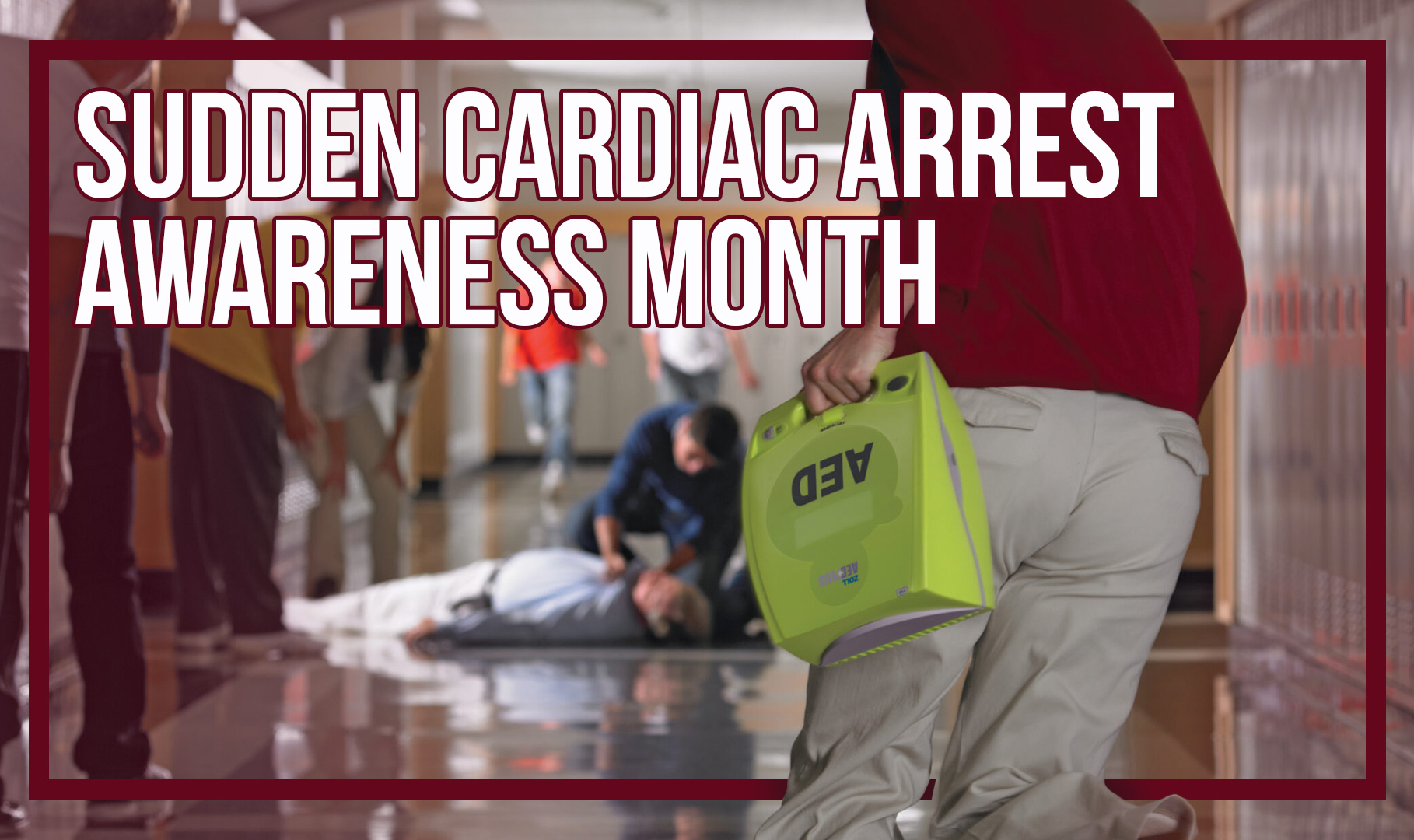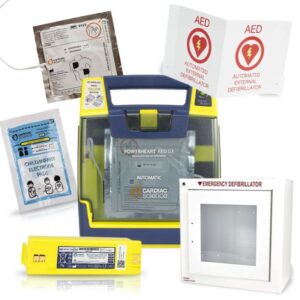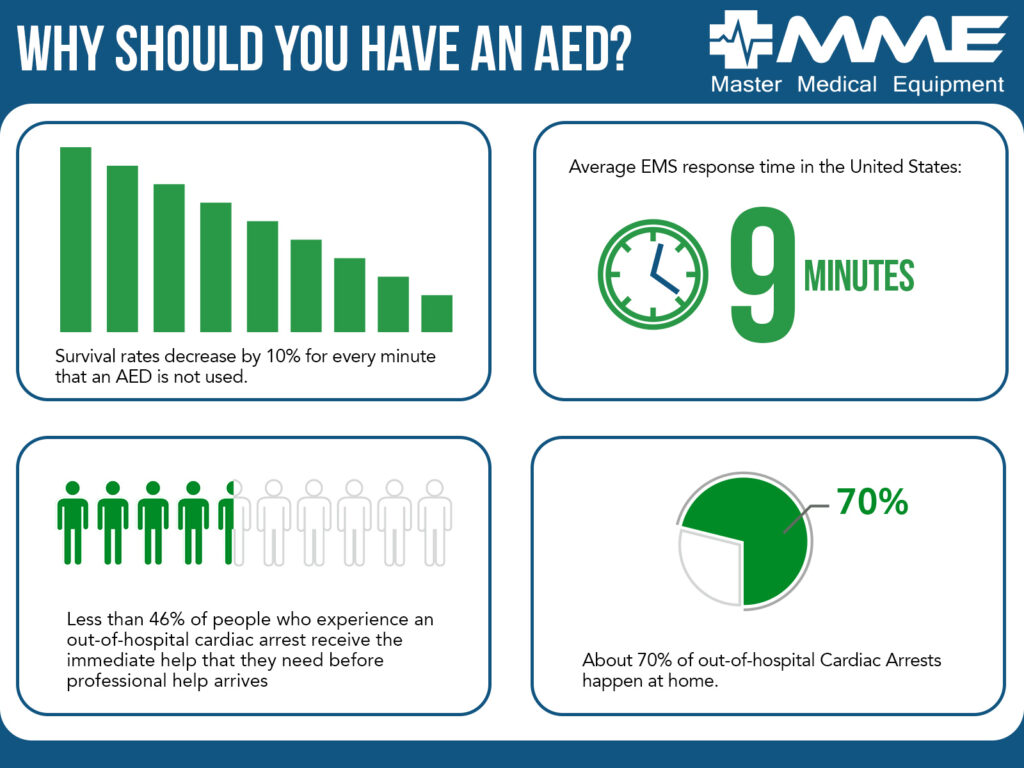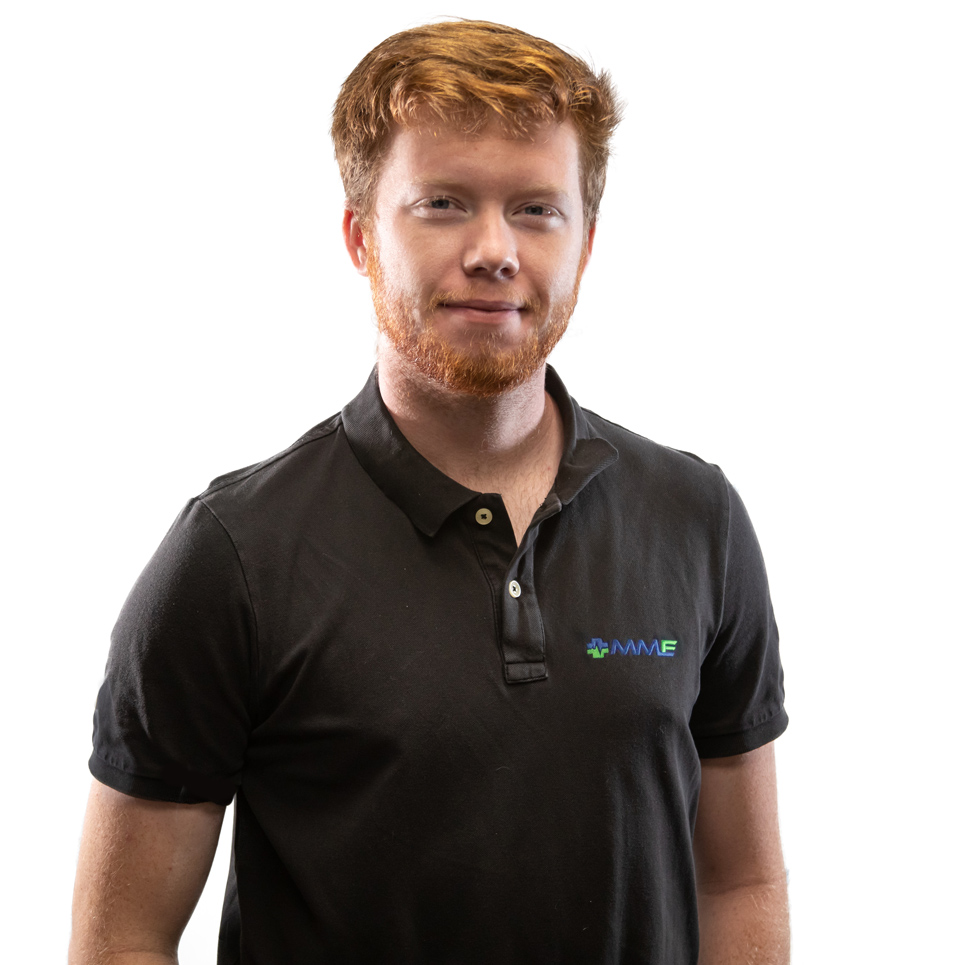Blog
Sudden Cardiac Arrest Awareness Month

National Sudden Cardiac Arrest Awareness Month
October is National Sudden Cardiac Arrest Awareness Month, a time to reflect on SCA preparedness, response, and heart health. Every year, an estimated 350,000 people die from cardiac arrest in the United States. How can you incorporate life-saving safety measures in your schools, workplace, and home?
Cardiac arrests are due to an electrical malfunction in the heart, whereas heart attacks result from an artery blockage. An SCA victim must receive immediate CPR to keep blood flowing and avoid permanent damage. Additionally, a bystander or first responder must administer a heart-restarting defibrillation shock with an AED. 
In 1963, the American Heart Association endorsed CPR (CardioPulmonary Resuscitation) and promoted it to the public in 1972. As data has developed over the years, so have the knowledge and standards of CPR for healthcare providers. CPR is the hands-on process of providing manual chest compressions to a cardiac arrest victim, partially maintaining an active blood flow until trained medical personnel arrive.
Quality CPR is a vital part of an emergency SCA response. Automatic External Defibrillators, or AEDs, have also caused an increase in SCA survival rates. A sudden cardiac arrest requires immediate defibrillation to reset a regular heart pattern. For every minute after the incident without a shock administered, chances of survival drop by 10%. The average EMS response time in the US is nine minutes, meaning even in the best circumstances, SCA victims have a low survival rate without bystander aid.

Automated External Defibrillators come in various shapes, sizes, and colors but are all carefully crafted to guide a layperson to calmly and effectively treat an SCA victim. AED units guide rescuers step-by-step through the CPR and defibrillation process, with some even delivering instructions in multiple languages. Ready access to an AED is a great preventive measure to respond to a cardiac arrest before emergency medical professionals arrive.
How can your AED be in the best position to save a life?
The first step is to HAVE an AED unit. Whether you need AED(s) for your school, workplace, or personal use, there are several variables to consider (such as placement, number, wall safety cabinets, trauma kits, etc.). We offer a variety of FDA-approved AED units and offer full support with batteries, pads, cases, and other accessories.
The second step is to get CPR and AED training for yourself, staff, and/or faculty. While non-professionals can use AEDs, CPR certification and emergency preparedness training is always beneficial. Knowing the rescue steps, location of AED, and chain of rescue prepares your employees to feel secure in the event of an emergency.
The final step for AED preparedness is to stay aware of the performance status of your device. AEDs perform a “self-check” daily or weekly to ensure everything works correctly. Additionally, AEDs need annual Preventative Maintenance to ensure that sensors, internal components, and software provide correct readings. We recommend using a trusted biomedical company to service, maintain, and calibrate your AED. Your AED also comes with shock-delivering pads. The gel in these pads has a shelf life, and pads must be replaced every two years. We offer a free service to track the expiration dates of your pads, ensuring you stay equipped in case of an emergency.
According to the British Journal of Sports Medicine, SCAs are the leading cause of sudden death in young athletes during exercise. We are seeing record high survival rates in hospital cardiac arrests; however, survival rates using an EMS system or emergency transport are still very low. Every year, bystanders with AEDs save thousands of lives in the United States. With proper awareness, training, and AED placement, we can save countless more.
If you’re ready to purchase or finance AEDs for your school, workplace, or personal use, we can find the unit that meets your needs while fitting your budget. We are happy to answer any questions you may have concerning AEDs, our friendly and knowledgeable customer service team is here to help. Reach out to us via our online chat feature, or call us at 866.468.9558.

Jake Beals
Master Medical Equipment, Content Strategist
